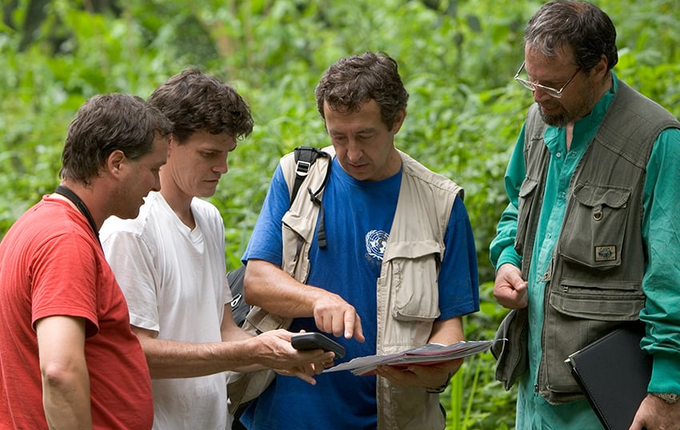Today, at the World Health Organization (WHO), panelists made an impassioned plea for urgent climate action as it hosted a Strategic Roundtable on the Role of the Health Communities in Climate Action: taking stock and moving forward at the World Health Assembly.
“The most pressing reasons for urgent climate action are the impacts not in the future, but right now, on health” said Dr Tedros Adhanom Ghebreyesus, WHO Director-General, as he opened today’s Strategic Roundtable. “The climate crisis is a health crisis, fuelling outbreaks, contributing to higher rates of noncommunicable diseases, and threatening to overwhelm our health workforce and health infrastructure.”
Climate change is emerging as one of the greatest health challenges of the 21st century. It is bringing more deadly extreme weather events, increasing non-communicable diseases, and is facilitating the emergence and spread of infectious diseases. Furthermore, it is impacting our health workforce and infrastructure, simultaneously reducing the capacity to achieve Universal Health Coverage, an objective fundamental to WHO’s mandate. Further delay in action will significantly increase risks to our health, undermine decades of improvements in global health, and contravene our collective commitments to ensure the human right to health for all.
In a compelling address, Dr Maria Neira unveiled three challenges that the health community must confront. The initial and foremost challenge entails tackling the diverse array of health repercussions stemming from the climate change crisis, emphasizing the need to safeguard human well-being. The second challenge revolves around constructing resilient health systems that can effectively navigate the complexities of the 21st century, ensuring optimal healthcare provision in an ever-evolving landscape. Lastly, Dr Neira highlighted the health advantages derived from transitioning towards a low carbon society, illustrating the critical interplay between environmental sustainability and human well-being. These three grand challenges call on the health community to mobilize and engage in transformative action to safeguard public health and secure a sustainable future for generations to come.
Dr Vanessa Kerry, Chief Executive Officer of Seed Global Health, highlighted that rather than focusing on a more dire outlook, we could strike a more optimistic tone. “Before us lies a choice, a pathway to create a cascade of benefits to protect our planet, our livelihoods, our health, wealth and wellbeing,” she said. “If we embrace a health-centred response to climate change, with smarter investments, we can have a catalytic impact across multiple sectors,” she continued.
John Kerry, United States Special Presidential Envoy for Climate Change, thanked WHO for sounding the alarm on climate crisis and stated: “There is no polite way to put it, the climate crisis is killing people.” He emphasized that for both President Biden and himself, this decade is one for taking decisive action.
In a groundbreaking move, Mr Adnan Z. Amin, CEO of COP28, announced, the inclusion of a ‘Health Day’ as an integral part of this year’s conference agenda. This dedicated ‘Health Day’, including a meeting of Health and Climate Ministers, will serve as a platform to deliberate on the intricate relationship between climate change and public health. It is a significant shift in focus, highlighting the recognition of health as a central pillar in climate discussion at the highest level at the upcoming Conference of Parties (COP), the annual event which convenes world governments under the auspices of the United Nations Framework Convention on Climate Change (UNFCCC). By incorporating a ‘Health Day’ into COP28, world governments and policymakers aim to raise awareness about the direct and indirect health implications of climate change.
The WHO Director-General further outlined “WHO’s key actions to mitigate and build resilience to the climate crisis by first, to promote actions that both reduce carbon emissions and improve health; second, to build better, more climate-resilient and environmentally sustainable health systems; and third, to protect health from the wide range of impacts of climate change.” He went onto say: “We need renewable energy in healthcare facilities; dedicated funding to the health sector for climate resilience; and increased use of reliable, cheap and green electricity.”
Speakers also included Dr Hussain Al Rand, Assistant Undersecretary for the Public Health Sector, Ministry of Health and Prevention of the UAE; Mr Ahmed Naseem, Minister of Health of the Republic of Maldives; Ambassador Katharina Stasch Permanent Representative, Permanent Mission of the Federal Republic of Germany to the UN; Dr Omnia El Omrani, Youth Envoy for the President of the COP27 UN Climate Change Conference; Mr Michel Demaré, Chair, Astrazeneca / founding member of the Sustainable Markets Initiative. A number of significant interventions also took place from the floor tackling the ever-pressing health concerns of climate change.
There is now indisputable evidence, diverse expertise and global experience in place to respond on the issue of climate change and health. National governments, development agencies, philanthropic organizations, academic institutions and – critically – frontline health workers, are increasingly engaged to support climate and health action. Uniting forces and mobilizing health arguments and evidence has the power to transform the climate narrative from one of paralysis in the face of an overwhelming threat, to a positive vision of a healthy, sustainable future for all.
Governments, organizations, and the private and public sector, are increasingly engaging with the need to create a sustainable future that places health at the centre of its activities. The WHO remains committed to being part of this.


Comments are closed.